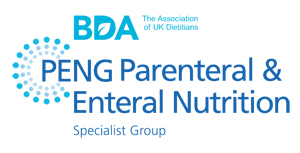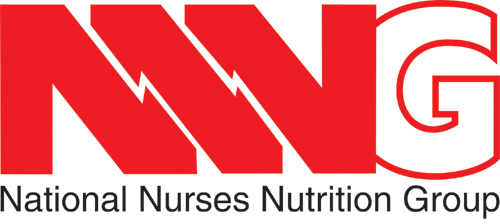Core Groups Updates

Jutta Köglmeier, NIFWG of BSPGHAN - BAPEN Representative
Email: Jutta.Koeglmeier@gosh.nhs.uk
Website: www.bspghan.org.uk
Meetings 2020
In 2020 the NIFWG has met during the annual BSPGHAN winter meeting in Brighton on 31st January 2020 and via zoom on 5th May 2020.
The next complex nutrition and intestinal failure rehabilitation meeting was supposed to take place in Cambridge in September 2020 organised by Camilla Salvestrini and her team. Unfortunately the meeting won’t go ahead this year in light of the current COVID-19 pandemic. The NIFWG is hoping that the meeting will be rescheduled for early 2021.
e-BANS
Most paediatric IF centres in England apart from three (13/16 Blueteq centres) have contributed data to e-BANS. The data has been presented at the last BSPGHAN annual meeting in January and will be published in a peer reviewed journal in due course. As e-BANS is closing Rachel has contacted all paediatric centres to make sure the current data is up to date.
The NIFWG members have discussed the format of the new database which is currently being finalised.
BAPEN
BAPEN paediatric symposium 26th November 2019 in Belfast – Nutrition support in infants and children: This symposium was jointly organised by BSPGHAN and BPNG and focused on the management of parenteral nutrition in infants and children from birth to adolescence. Three speakers were invited. The first talk given by Alia Hussain, Senior Clinical Pharmacist at University College London Hospital focused on the issues around the implementation of standard bags on neonatal units in London. The second lecture was given by Venetia Simchowitz, Parenteral Nutrition Consultant at Great Ormond Street Hospital London. She discussed parenteral nutrition regimes for infants and children in the hospital setting and the implications of the updated ESPGHAN PN guidelines published in 2018.
The last speaker was Prof Andrew Gennery, Consultant in Paediatric Immunology and HSCT at Newcastle University Hospital. He spoke about how to manage fluid and nutrient requirements of a child with complex health needs after a bone marrow transplantation.
The 2020 BAPEN paediatric symposium: This was supposed to focus on the nutrition management of IBD. Unfortunately, the symposium will not be happening this year as conference is not going to go ahead in the original format, in light of the current COVID-19 pandemic. The NIFWG is hoping that the 2021 symposium will take place as it has in previous years.
BAPEN membership: BAPEN membership is now free for BSPGHAN members and several BSPGHAN members have already made use of this opportunity.
BAPEN representatives: Jemma Cleminson has joined the NIFWG as trainee BAPEN representative and will work together with Jutta Köglmeier.
Allied health groups
Pharmacy
BPNG (British Pharmacy Nutrition Group): Revised National Framework for home PN has been extended from 1.4.2018 to 31.3.2020. The last framework meeting took place on the 20th November 2019 and was attended by Susan Hill and Venetia Simchowitz. The tender is in progress.
The 2018 ESPGHAN PN guidelines have now been published.
Dietitians
Lynn Hagin is representing the paediatric dietitians on the NIFWG. There was much debate in the last few years about the use of blended diets in children. There is now a BDA position statement published.
Nutrition nurses
Angela Cole is representing the paediatric nutrition nurses on the working group. The nutrition nurses have now an established network. The 2nd network meeting took place on 2nd October 2019, in London. The study day had industry sponsorship and registration was free. The day was again very successful and attended by most UK paediatric nutrition nurses. Topics included the surgical and medical management of short bowel syndrome, congenital enteropathies, motility disorders and home parenteral nutrition.
PINNT documents for transition of young people on home PN from paediatric to adult services are now available.
BIFA
Paediatric top tips published in In Touch: Managing children receiving long term parenteral nutrition (Julian Thomas, Theo Wong). Further topics are planned.
There is a plan to have a joint paediatric and adult BIFA day after the last very successful meeting in 2017. Potential topics include transition, the changing face of adult IF and the difference in the approach and management of adult and paediatric IF.
Update on Home PN
Since Calea was found to have some deficiencies at the last MHRA inspection, which led to reduction in compounding facilities, home PN for children has also been affected.
Even though no patients under 16 years had their compounding slot withdrawn, there were delayed deliveries for a significant number of patients. Things have now stabilised but there are ongoing concerns.
The problem was not temporary and has adversely affected the compounding capacity in the country affecting discharge of patients home on PN.
In order to get approval of a home PN slot children are now discussed at a panel.
COVID-19 and Home PN
Children on home PN were initially felt to be extremely vulnerable and advised to shield. As children have not been severely affected by COVID-19, the advice has now been changed.
Children with Intestinal failure requiring home parenteral nutrition should only continue to shield if they meet one or more of the following criteria:
- Primary immunodeficiency or immunodeficiency induced by drugs as part of their therapy (as in group A)
- With other significant conditions (as in group A) or other organ involvement (renal, haematology, cardiac, GI, respiratory, diabetes mellitus, etc.)
- Social cofactors (e.g. heavily reliant on support from healthcare professionals/carers).
To download full pdf guidelines please visit: https://bspghan.org.uk/bspghan-updated-shielding-guidance-and-advice-on-returning-to-school-for-children-with-gastrointestinal-liver-and-nutritional-problems

Kate Hall, PENG Chair
Email: communications.peng@bda.uk.com
Website: www.peng.org.uk
Twitter: @PENGDT
We appreciate this is a busy and uncertain time for many and PENG have been working with others to develop resources to support dietitians and other HCPs. Some of the resources can be found on the BAPEN COVID-19 webpage but also on the BDA COVID-19 website for HCPs.
There have also been various changes, as would be expected, to events and activities that PENG would normally be involved in and these changes are being updated through the PENG website and also in the upcoming edition of e-PENlines – updates include PENG AGM, PENG study day/webinar for 2020 and PENG Award 2020. Another change to the PENG calendar includes the 2020 PENG Clinical Update Course, which was cancelled earlier in the year, but the planning for 2021 has already started.
Prior to COVID-19 we had a PENG committee meeting and one of the plans for 2020 was to explore PENG hosting some webinars and this is even more relevant now. Although not hosted by PENG, PENG have been involved in presenting at some dietetic webinars over the past couple of months. These have specifically focused on nutrition support and COVID-19 patients, along with looking at the step down from ICU and at point of discharge into the community.
It is so important to share practice – even more so at this time – so working in collaboration with other HCPs at a local and national level will continue. Please visit: www.peng.org.uk for any further information.

Georgie Adams, NNNG Communications Officer
Email: nationalnursesnutritiongroup@gmail.com
Website: www.nnng.org.uk
Twitter: @NNNGUK
Recovery & contingency – COVID-19 nutrition update
The healthcare crisis is rapidly changing, necessitating the need to draw on the evidence we do have in the area of nutrition and respiratory disease. Symptom management, nutrition support and therapy remain the key factors for treatment and recovery. Let’s not forget, specialist nurses provide vast amounts of knowledge, expertise and experience. The National Nurses Nutrition Group (NNNG) continues to inform and collaborate in policy-making at the highest level (www.bapen.org.uk/pdfs/covid-19/bapen-letter-to-rt-hon-matt-hancock.pdf).
Below are some key documents/papers that are definitely worth reviewing:
European Society for Clinical Nutrition and Metabolism (ESPEN)
Published in Clinical Nutrition, the ‘ESPEN expert statements and practical guidance for nutritional management of individuals with SARS-CoV-2 infection’ aims to provide ‘concise guidance for nutritional management of COVID-19 patients by proposing 10 practical recommendations’.
Access via: www.clinicalnutritionjournal.com/article/S0261-5614(20)30140-0/pdf
Parenteral nutrition in adults during acute illness: a clinical perspective for clinicians
This review by Fetterplace K, et al. ‘aims to provide clinicians a practical guide for the management of PN in adult patients within the acute setting’.
Access via: https://doi.org/10.1111/imj.14786
Nutritional status and COVID-19: an opportunity for lasting change?
This editorial in Clinical Medicine (an RCP journal), written by Consultant Gastroenterologist Shameer Mehta, reminds us:
- The importance of nutritional screening prior to ICU transfer: clinically relevant sarcopenia in obese individuals
- ssisted feeding, ONS and supplementary Enteral regimes in the COVID-19 Medical wards
- NIV Masks with ports & pressure dressings for NG tube
- Respiratory labour accounts for up to 25% of energy expenditure and that progressive energy deficit may contribute to respiratory demise
- Crucial nutritional therapy should continue after discharge, pre-existing risk factors are likely to persist once patients are back in the community
- Adapt traditional nutritional care pathways to allow temporary mechanisms for pragmatic and safe decision-making
- Promote and facilitate a nutritional culture – behavioural change, embed nutritional care into routine practice.
Access via: www.rcpjournals.org/content/clinmedicine/early/2020/04/27/clinmed.2020-0187.full.pdf?download=true
Public Health England (PHE): Mouthcare for patients with COVID-19 or suspected COVID-19
This guidance from PHE ‘outlines mouthcare for hospitalised adults and children with COVID-19or suspected COVID-19 who are non-ventilated, ventilated and those having step down or end of life care’.
Access via: www.nnng.org.uk/wp-content/uploads/2020/04/COVID-19-mouthcare-guidance-for-hospitals-FINAL-08042020.pdf
Critical Care Specialist Group (CCSG) of the BDA Guidance on management of nutrition and dietetic services during the COVID-19 pandemic
Developed by members if the CCSG of the British Dietetic Association (BDA), the document considers current recommendations and local experiences of those working with critically ill patients with COVID-19.
The Malnutrition Task Force: Coronavirus Information Hub
With all the terrible news and the tragically large numbers of deaths, it is easy to forget that most people who have COVID-19 make a full recovery after a short illness. Take a look at the practical guide from the Malnutrition task force providing an update for healthcare professionals in the community and those working in rehabilitation units. The importance for identifying those at risk of malnutrition and disease related malnutrition with appropriate use of ONS.
Access via: www.malnutritiontaskforce.org.uk/coronavirus-information-hub
Royal College of Nursing (RCN): Mindful Moments in a crisis
With the COVID-19 pandemic adding extra stress to working lives, in the RCN Bulletin, Annette Duff looks at mindfulness.
Access via: www.rcn.org.uk/magazines/bulletin/2020/april/mindfulness-tools-in-a-crisis-stress-meditation-covid-19
Support & advice
- Advice for family & friends form the BDA – COVID-19 Public Infographics:
www.bda.uk.com/resource/covid-19-public-infographics.html?utm_content=buffer006c1&utm_medium=social&utm_source=twitter.com&utm_campaign=buffer - Support for our colleagues working in care homes:
facebook.com/groups/RCNCareHomeNetwork/ - Support for our BAME colleagues: https://rcni.com/nursing-standard/newsroom/news/covid-19-bame-nurses-may-be-missing-out-mental-health-support-160776 and www.kingsfund.org.uk/blog/2020/04/ethnic-minority-deaths-covid-19
